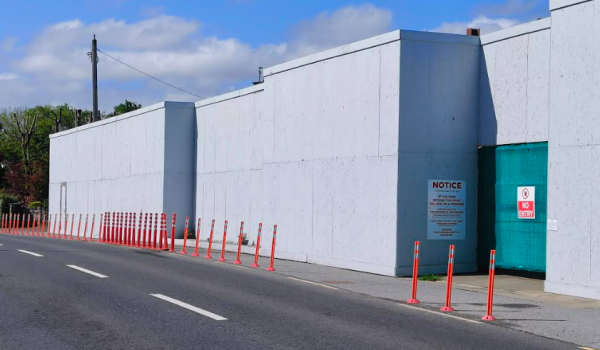Representatives of the Pat Finucane Centre have left a meeting with with officials from the Northern Ireland Office to discuss the British government’s proposals on legacy.
The meeting was cut short after ten minutes because of a claim in one of the British Government’s documents that the majority of killings carried out by members of the police and security forces were lawful.
Earlier this week, the Pat Finucane Centre had asked the Northern Ireland Office for the source of one claim in a paper outlining the proposals which stated “Security Forces were responsible for around 10% of Troubles-related deaths – the vast majority of which were lawful …”
Representatives of the PFC, which represents a number of families whose loved-ones were killed by soldiers or RUC officers said most of these families have never been accorded independent investigations.
In the most recent case, the judge stated that until late 1973, an understanding was in place between the RUC and the Army whereby the RUC did not arrest and question, or even take witness statements from, soldiers involved in such shootings.
The PFC says this appalling practice was designed, at least in part, to protect soldiers from being prosecuted, and in very large measure it succeeded.
It is not possible, therefore, for the British government to claim the “vast majority” of security force killings were “lawful”.
Release in full –
22 JULY – PRESS STATEMENT – FOR IMMEDIATE RELEASE
The Pat Finucane Centre held a short meeting with officials from the Northern Ireland Office this morning, at their invitation, called to discuss the British government’s proposals on legacy. The meeting was cut short, however, after ten minutes.
Three days earlier, the Centre had asked the NIO for the source of one claim in the Command Paper which outlined the proposals that stated: “Security Forces were responsible for around 10% of Troubles-related deaths – the vast majority of which were lawful …”
The Pat Finucane Centre represents a number of families whose loved-ones – men, women and children – were killed by soldiers in the British Army or RUC officers. Most of these families have never been accorded independent investigations compliant with Article 2 of the European Convention on Human Rights (ECHR).
In two cases[i], the courts have already ruled that interviews conducted by members of the Royal Military Police (RMP) were not compliant with Article 2 and the killings, therefore, were not properly investigated. In the most recent case, the judge stated:
“At that time, in fact until late 1973, an understanding was in place between the RUC and the Army whereby the RUC did not arrest and question, or even take witness statements from, soldiers involved in shootings such as this one. This appalling practice was designed, at least in part, to protect soldiers from being prosecuted and in very large measure it succeeded.”
There are other cases, yet to come before the courts, where the similar “appalling practice” was in force. It is not possible, therefore, for the British government to claim the “vast majority” of security force killings were “lawful”.
We also take issue with the 10% claim, which excludes deaths where collusion is either suspected or proven.
Taken together with recent judgements in the Ballymurphy Massacre inquest and the Bloody Sunday Tribunal report, we believe the Command Paper must be revised with the “lawful” claim removed.
The PFC was invited to the meeting today with the NIO solely because we represent bereaved families. Some lost relatives at the hands of the “security forces”. In all conscience, therefore, we were unable to continue the meeting until the NIO has clarified its source for the “lawful” claim which exculpates the killers from any legal blame.
We are willing, indeed anxious, to discuss the British government’s current proposals on legacy which we find totally unacceptable and which, we believe, breach common law, international law, the Human Rights Act and the European Convention on Human Rights.
But, in all conscience, and out of respect for the families we represent, we feel unable to do so until London has, at least, either produced evidence to back up its claim in the Command Paper or agrees to withdraw it.
[i] The killings of Kathleen Thompson in Derry and Joe McCann in Belfast, see: https://www.judiciaryni.uk/sites/judiciary/files/decisions/In%20the%20matter%20of%20an%20application%20by%20Mary%20Louise%20Thompson%20for%20Judicial%20Review.pdf and https://www.judiciaryni.uk/sites/judiciary/files/decisions/The%20Queen%20v%20Soldier%20A%20and%20Soldier%20C.pdf






